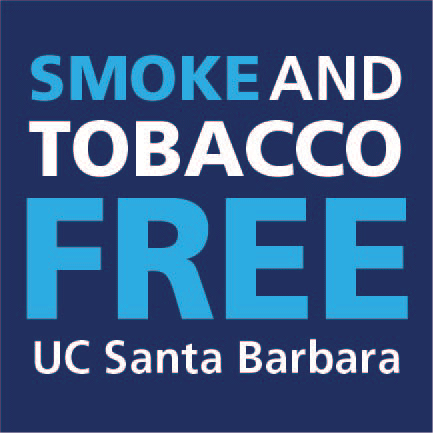A strain of Hantavirus has recently been found in the deer mouse (Peromyscus maniculatus) populations on San Miguel, Santa Rosa, and Santa Cruz islands. This virus also occurs in many locations on the mainland.
The disease caused by this virus is called HARS (Hantavirus Acute Respiratory Syndrome) or HPS (Hantavirus Pulmonary Syndrome). While the occurrence of the virus on the islands is a recent discovery, most scientists agree that the virus has likely been present on the islands and on the mainland for possibly hundreds of years.
No one has ever been infected by Hantavirus on the Channel Islands (to date, some two dozen high exposure risk staff and residents of various island organizations have been tested and all had negative evidence of infection). The chance of getting the disease from a trip to the islands is almost negligible.
Still, this is a potentially fatal disease, and some basic precautions should be taken.
Rodents are hosts for a variety of diseases and parasites, including ticks, fleas which carry plague, and rabies.
Hantavirus is transmitted through the body fluids of the deer mouse, and can become airborne when large masses of feces and urine are disturbed.
People hiking and staying on the island for short visits are at very low risk; rather, most cases of Hantavirus infection have occurred when people have cleaned out or lived in buildings that have been inhabited by large numbers of rodents for many years.
Whether on the islands or the mainland, the precautions for avoiding infection by Hantavirus are the same as those for the avoidance of any illness which may be contracted from rodents. Such a practice of Universal Precautions means treating all potentially infectious mammals and insects as if they are infectious.
In response to this concern, the University is making every effort to reduce and avoid contact between users of the reserve and mice. However, this effort requires assistance from you, the reserve users, and we are requesting your help and cooperation, especially by complying with the suggested risk reduction and cleanup guidelines.
The program has three components:
1. Reducing food, water, and refuge in and adjacent to the buildings.
2. Reducing mouse ingress, egress, and access to the buildings.
3. Reducing mouse populations in the buildings by trapping. Although it is probably impossible to completely eliminate mice from the field station complex, this program should result in reduced exposure for our users and staff.
Symptoms of Hantavirus infection:
HARDS first manifests itself as mild flu-like symptoms (muscle ache, slight fever, and lethargy), usually two to six weeks after exposure to the virus. Acute respiratory distress may follow.
If you experience flu-like symptoms and believe you may have had contact with rodents within the last 30 says, contact your physician immediately.
More detailed information concerning Hantavirus is posted at the reserve field station or you may contact the reserve director. If you follow these guidelines of Universal Precautions and basic practices of cleanliness you should have minimal exposure to the virus and a very limited likelihood of contracting this disease from your visit to Santa Cruz Island.
Risk reduction guidelines:
**Do not feed any wild animals. Viruses and diseases are often passed through saliva; to reduce your chances of being bitten, avoid contact with wild animals. Infected mice may not show any symptoms of these diseases.
**Avoid contact with rodents and rodent burrows
**Do not disturb dens
**Do not pitch tents or place sleeping bags in proximity to rodent feces or burrows or near possible rodent shelters
**If possible, do not sleep on bare ground. Use tents with floors.
**Promptly discard all garbage and trash in rodent-proof containers
**Do not handle sick or dead animals.
**Keep food and drink in rodent-proof containers. Confine food to the kitchen and dining areas, not in your bedroom, lab, etc. Mice are most active at night, therefore put food in rodent-proof containers, refrigerators, or cabinets. Keep doors closed to cabinets and buildings, especially at night.
**Keep kitchen and dining areas as clean as possible. Put food and dishes away in closed cabinets at night. Clean countertops and do not leave dishes overnight in sink drainer. Place trash and food garbage in closed garbage containers and keep lids on them.
Report any signs of rodent infestations to the reserve director.
Clean up of mouse soiled areas:
1. Special precautions are necessary when signs of mice are present, especially feces, urine, and nest materials. Dry clean-up (sweeping, vacuuming) is not permitted as this aerosolizes particles that may be inhaled. Proper clean-up entails:
** Wearing rubber gloves
** Wetting the entire area with disinfectant.
** Wet-mopping with disinfectant or wiping up the area with paper towels.
** Bagging the towels and disposing of them in the trash.
** Disinfectant may be household bleach (1 to 4 parts water), Lysol, or other recommended solutions.
** If the area is extremely soiled, notify reserve staff for clean-up advice.
2. Trapping and removal of trapped mice should be done by reserve staff unless authorized by the reserve director. Appropriate precautions and guidelines must be followed.
***For more information visit the Channel Islands National Park web page at http://www.nps.gov/chis/planyourvisit/hantavirus.htm or the Centers for Disease Control web page at http://www.cdc.gov/hantavirus/
Click here for a PDF from the CDC



